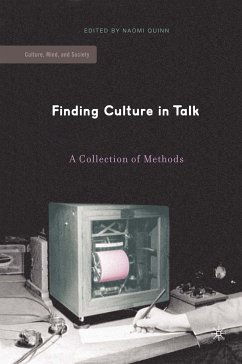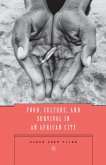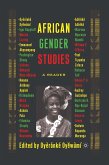This edited collection presents a range of heretofore unpublished, unavailable methods for the systematic reconstruction of culture from interviews and other discourse. Authors set the design and evolution of their methods in the context of their own research projects, and draw general lessons about investigating culture through discourse. These methods have largely grown out of the work of the cultural models school, and represent the approaches of some of the very best methodologists in cultural anthropology today. An impetus for the volume has been inquiries from researchers, many of them graduate students, about how to conduct the kind of research that cultural models theorists do. This is not a linguistics book; unlike approaches to discourse analysis from linguistics, this volume focuses on culture, treating discourse as a medium especially rich in clues for cultural analysis, and hence a window into culture.
"One of the best features of the book is the emphasis the contributors give to ruminating about the strengths and weaknesses of interviewing as a research method and analytical process. Another is the attention paid by various authors to the inconsistencies of both research and human lives. Even though this is very much a how to book, there is nothing mechanistic about these approaches to research and I appreciate how the authors show us ways to combine the creativity of the researcher with systematic approaches to information gathering in order to produce better results." - Wayne Fife, Memorial University of Newfoundland, Canada
'Finding Culture in Talk is a wonderful antidote to the 'science wars'. Its diverse offerings of methodological creativity all share an understanding of culture that takes into account how the human mind works and provide examples of how anthropologists can explicate but not reduce the richness and complexity of cultural meanings. This book is an invaluable tool for students and practiced anthropologists alike.' Victoria K. Burbank, University of Western Australia
"Finding Culture in Talk is a wonderful antidote to the 'science wars'. Its diverse offerings of methodological creativity all share an understanding of culture that takes into account how the human mind works and provide examples of how anthropologists can explicate but not reduce the richness and complexity of cultural meanings. This book is an invaluable tool for students and practiced anthropologists alike." - Victoria Burbank, University of West Alabama
"An excellent place to learn from experienced researchers about 'how to' approach the cultural analysis of discourse. Theoretically motivated, methodologically attentive, and pragmatically oriented, the valuable introductory chapter by Quinn sets the stage. The individual chapters that follow are full of insights and rich in detailed examples linking findings with the research process,as contributors reflect on their strategies for discovering the cultural meanings that underpin what is said in interviews and other forms of talk." - Linda Garro, University of California, Los Angeles
'Finding Culture in Talk is a wonderful antidote to the 'science wars'. Its diverse offerings of methodological creativity all share an understanding of culture that takes into account how the human mind works and provide examples of how anthropologists can explicate but not reduce the richness and complexity of cultural meanings. This book is an invaluable tool for students and practiced anthropologists alike.' Victoria K. Burbank, University of Western Australia
"Finding Culture in Talk is a wonderful antidote to the 'science wars'. Its diverse offerings of methodological creativity all share an understanding of culture that takes into account how the human mind works and provide examples of how anthropologists can explicate but not reduce the richness and complexity of cultural meanings. This book is an invaluable tool for students and practiced anthropologists alike." - Victoria Burbank, University of West Alabama
"An excellent place to learn from experienced researchers about 'how to' approach the cultural analysis of discourse. Theoretically motivated, methodologically attentive, and pragmatically oriented, the valuable introductory chapter by Quinn sets the stage. The individual chapters that follow are full of insights and rich in detailed examples linking findings with the research process,as contributors reflect on their strategies for discovering the cultural meanings that underpin what is said in interviews and other forms of talk." - Linda Garro, University of California, Los Angeles









